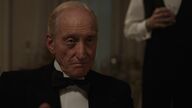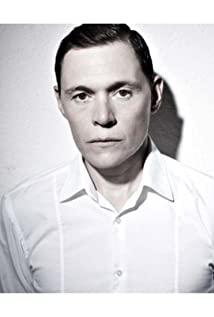-------
A non-existent couple invites people to the villa on the island. After being isolated from the world, they die one by one. The process of death is figured out with the hints of folk songs, until no one survives. A typical serial murder in a confined space, but in the end it gives a sense of justice being served.
But in fact, what is justice, everyone in the story has different degrees of sin. A young man who didn't regret the death of a race car, the housekeeper and his wife who killed his former employer to obtain his inheritance, the general who killed his subordinate when he found out that his wife had committed adultery with his subordinate, and the arrogance that led to suicide by claiming that God had no mercy at all. A woman, a doctor who performed an operation while intoxicated, a sheriff who killed a homosexual because of her inner secret and discrimination, a mercenary who killed 21 people in Africa because of diamonds, and a student who killed her own student because of her lover's inheritance. governess, plus the last death penalty judge who enjoys the right to punish criminals.
By listing them out in this way, I feel the subjectivity of sin even more. When my mind is moved, I can't get rid of it, and finally put it into action, but what follows is often a more frightening life (but only part of it).
There are also differences in sins, but you can't tell which sin is more advanced or inferior. If you choose two dimensions, you can have the following four types: the first is unconscious evil, such as young sons and arrogant women; the second Unconscious sins, such as doctors, sheriffs, and generals; third, conscious sins, such as mercenaries and judges (perhaps to add the condemned man who impressed the judges so much); and finally conscious sins , such as governesses and butlers. Here, "evil" is explained as a certain quality over time, and we live strictly according to this quality; "sin" refers to a certain quality that is suppressed in one's heart, but manifested in a certain event, and then tried to hide it. or forgotten.
It's very strange. I don't know if it's because I have too much attention to the heroine, the governess. Although she was classified into the same category as the housekeeper, she felt that her sin was greater than that of the housekeeper. (The same is true in the film, where the teacher dies at the end.) Perhaps the following points can be clarified a little: one, she kills a little boy; two, she ends up appearing as a surviving victim; three , her motives are too unconventional and thus display extreme egocentricity.
In the end, it is the third type of evil that we can tolerate most, conscious evil. They don't hide their evil and live by it strictly, reminiscent of the Joker in "Batman", the murderer in "Seven Deadly Sins", and the couple in "Born to Kill". (It seems that several other categories are also found in various movies, especially the first.)
View more about And Then There Were None reviews











